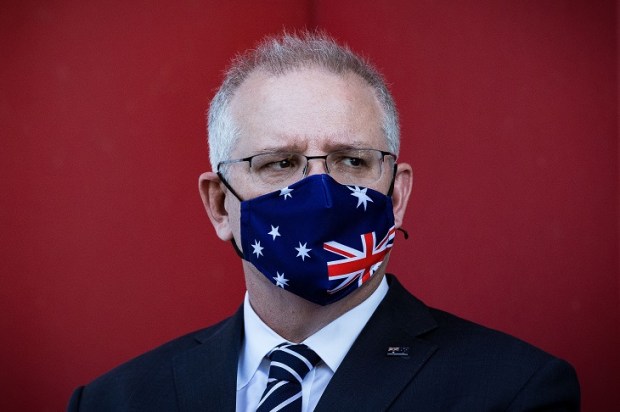‘The Misdeeds of AHPRA’ may sound like a provocative title for a medical conference, but the testimonies shared at this landmark event in early May proved it was well deserved. Doctors, lawyers, academics, and harmed patients came together to confront the growing crisis in Australia’s health regulation, specifically focusing on the performance of the Australian Health Practitioner Regulation Agency (AHPRA). Their conclusion was clear: AHPRA is not fit for purpose. The system is failing both patients and practitioners.
For too long, AHPRA has operated without effective oversight, shielded by a legislative framework that grants it sweeping powers and near-immunity from consequences. Despite recent public promises of reform from AHPRA’s new CEO, only one thing can fix this broken system: legislative change that delivers true accountability.
Conference attendees witnessed hours of personal testimony from medical practitioners, legal professionals, and patients, all searching for an answer to the problem of how to reform, or replace, an institution that is failing in its mandate to ‘protect the public’.
Perhaps the most powerful moment of the conference was when Mei-Khing Loo took the stage. Tearfully, she described the final days of her husband, Dr Yen-Yung Yap, an Adelaide obstetrician who died by suicide while under investigation by AHPRA. He left behind a letter and three young children. He also left behind a profession grappling with a regulator so punitive and opaque that many now practise in fear.
Dr Yap’s story is not unique. Between 2018 and 2021, at least 20 healthcare practitioners involved in AHPRA processes either attempted or died by suicide. As Ms. Loo spoke, she received a standing ovation. Recognition not only of her grief but of the shared trauma within the room.
It’s not only practitioners who are at risk from the regulator. Adding the patient’s perspective was Craig Covington, a documentary filmmaker whose life was turned upside down by AHPRA. After suffering devastating nerve damage and Complex Regional Pain Syndrome from a botched elbow surgery, he filed a hospital complaint. His own experience led him to later become interested in patient complaints. In the process of researching and uncovering some disturbing findings, he later discovered that AHPRA had profiled him in its database. Craig, who is not a practitioner, later learned he was blacklisted as ‘difficult to deal with’ and flagged until the year 2099.
‘They said I was a contagion, that I risked infecting others with the disease of being able to think for themselves,’ he said.
He and his husband faced months of online attacks, social media harassment, and professional retaliation – all from practitioners tied to AHPRA’s research and governance networks. When he tried to lodge a formal complaint, AHPRA didn’t even acknowledge receipt.
This is the real-world impact of unchecked power: fear, silence, and system-wide breakdown.
In April, newly appointed AHPRA CEO, Justin Untersteiner, publicly acknowledged concerns over lengthy delays and the overuse of immediate suspension powers. He committed to reducing the number of professional misconduct referrals to tribunals and promised more efficient processes.
While these proposals are a welcome first step, they are not enough.
Why? Because the underlying problem remains untouched: AHPRA has no real accountability. It answers to no single health minister. It is not subject to the National Anti-Corruption Commission. It is not required to adhere to performance KPIs enforced by the government. Even the National Health Practitioner Ombudsman – the only oversight body – is funded by AHPRA itself and lacks the power to enforce change.
As AVANT stated in its submission to the Ombudsman’s recent investigation:
‘Currently, there are no consequences for AHPRA and National Boards when investigations are not expedited after immediate action has been taken. Without a legislated timeline… there is no accountability.’
In other words, any reform introduced without a change in law is subject to the whim of whoever is in charge. AHPRA’s culture will not shift until its structure is forcibly altered.
The consequences of this overreach extend far beyond individual doctors. Every time a practitioner feels unsafe to speak – whether to the public or a patient – informed consent is compromised.
During the Covid pandemic, AHPRA issued a joint position statement warning practitioners not to undermine public confidence in the vaccine rollout. Many took this as a veiled threat: speak up and risk suspension.
The effect was chilling. Doctors who held legitimate safety concerns – particularly regarding emerging evidence of myocarditis, pericarditis, and other serious side effects – were effectively silenced. A recently released U.S. Senate report confirms that federal health authorities suppressed evidence about serious vaccine risks.
Meanwhile, doctors in Australia were warned to stay quiet or face disciplinary action.
Dr Mukesh Haikerwal, former president of the AMA, put it simply:
‘You should not lose your civil liberties for being medically qualified.’
But that is exactly what’s happening. And as long as AHPRA can monitor, and punish, social media and free speech, the public will continue to suffer the downstream effects of gagged practitioners.
The conference offered more than criticism, it provided a roadmap. Here are the most urgent reforms that must be legislated:
Time Limits and Transparency – Legislated timelines must apply to all investigations, particularly when emergency suspension powers are used. Regulators should be required to report overdue cases to Parliament. As one speaker noted: ‘A bad decision in three months is better than a good decision in three years.’
Compensation for Wrongful Suspensions – Doctors who are cleared after being wrongfully suspended should receive compensation. This not only incentivises better regulation, it protects the profession from long-term harm.
Democratic Election of the Medical Board – The medical board must be elected by the doctors it regulates. This will restore professional confidence and ensure representation, not subjugation.
True Accountability – Responsibility must be assigned to a federal health minister, with AHPRA’s funding and performance tied to government KPIs. The regulator must also fall within the jurisdiction of the National Anti-Corruption Commission.
Free Speech Protections – Anonymous complaints about social media posts should be disallowed. Regulatory action must be limited to conduct that violates actual laws not statements that merely challenge orthodoxy.
As one conference speaker said, ‘This profession is Australia’s greatest asset. No one should own it. No bureaucracy, no board. It must be the patients’ profession.’
Political solutions are not always easy to achieve, especially when the issue seems distant, irrelevant, or disconnected from winning votes. But nothing could be further from the truth. Health practitioner regulatory reform will translate to wins for the government in terms of healthcare workforce, and that’s always a vote winner. But we must be ready to hand politicians ready-made, workable solutions in terms of legislation and reform in order to make it politically attractive to act.
The public thinks AHPRA is protecting them. But in reality, AHPRA is shielding itself. Every day that goes by without reform, more patients suffer, more trust is lost, and more health practitioner careers, and lives, are destroyed.
Destroyed by a system that is answerable to no one. That must change.
Dr Julie Sladden is a Tasmanian Local Government Councillor and retired medical doctor. If you’d like to support her caffeine-inspired writing, you can shout her a coffee here.

























